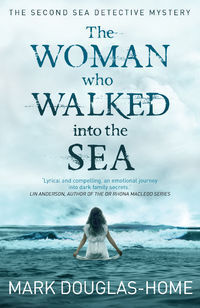Pardon me while I tell you about some great mysteries
In recent weeks I have sought balance to some heavy nonfiction by indulging my deep need for well written mysteries. I've recently read four really great books: The Woman Who Walked Into the Sea by Mark Douglas-Home, Brooklyn Bones by Triss Stein, Bury Your Dead by Louise Penny and The Strange Fate of Kitty Easton by Elizabeth Speller.
Three are contemporaries and one a historical (Kitty Easton). Only one is set in the US (Brooklyn Bones, of course) while the others are in Scotland, Quebec and England. All involve tales from the past and, most enjoyable for me, the secrets held by people in small communities or close knit neighborhoods. None of them are obvious and none of them are thrillers. There is no running for you life in these books, although there is the discovery of bodies, the certainty of murder and the search for clues. All of them are great.
I was drawn to Louise Penny's series because of the French Canadian setting (my father would have loved these books so much). Bury Your Dead involves a contemporary murder but is mostly about Samuel de Champlain's missing grave. As he is basically the George Washington of French Canada, his loss matters a lot and I very much enjoyed reading about where he might be and why. (Plus the research library!!! The French phrases! THE FOOD!)
Triss Stein's main character does community history in Brooklyn and that was interesting in a whole other way. I liked the turning of scrapbook pages, the search in family photos, the diving into local museum records. This reminded me a bit of Nancy Drew if she went to work as a historian; I could see it all really happening which is a mystery trope I really enjoy. (Most of us are not cops or FBI agents but historians? That's something we could do!)
Elizabeth Speller writes about post-WWI England which is period of history that endlessly fascinates me. Some of my distant relatives served in this war and there were very interesting stories concerning religious visions that came back with them from the war. Plus, it really frustrates me still how little Americans know about the war - this was a big theme when I was teaching - and Speller does an excellent job at showing how it permeated every aspect of life in England in the 1920s. She also does tortured heroes very well. :) (This book 100% did not end the way I thought it would.)
Finally, Cal McGill and the intriguing career of a Scottish oceanographer (which often involves the tracking of bodies). If you grew up on the ocean as I did then you know that beach combing comes with the territory. The more I read about McGill's adventures, the more I wonder why I let myself get so intimidated by oceanography in college. I always loved studying the tides but for some reason I thought anything to do with the ocean meant I had to dissect sharks. (Sadly, I didn't spend a lot of time looking into careers in this field.)
With The Woman Who Walked Into the Sea, Cal is not in as much of the story as secondary characters are, especially the young woman looking for answers about her lost mother. I missed Cal a bit but I did like the mystery a lot (another grim small town, this one facing land sale issues) and I did like how Cal answered a key question about items that washed up on shore. I read these books partly as a "might have been" for myself and so far, Cal has not had to dissect a single thing.
Dammit.
For more: The Malice of the Waves, the third Sea Detective novel, is due in August; Brooklyn Graves, the second Erica Donato book is out in paperback; a ton of books in the Chief Inspector Gamache series are out and Elizabeth Speller is working on a new Laurence Bartram entry right now.





